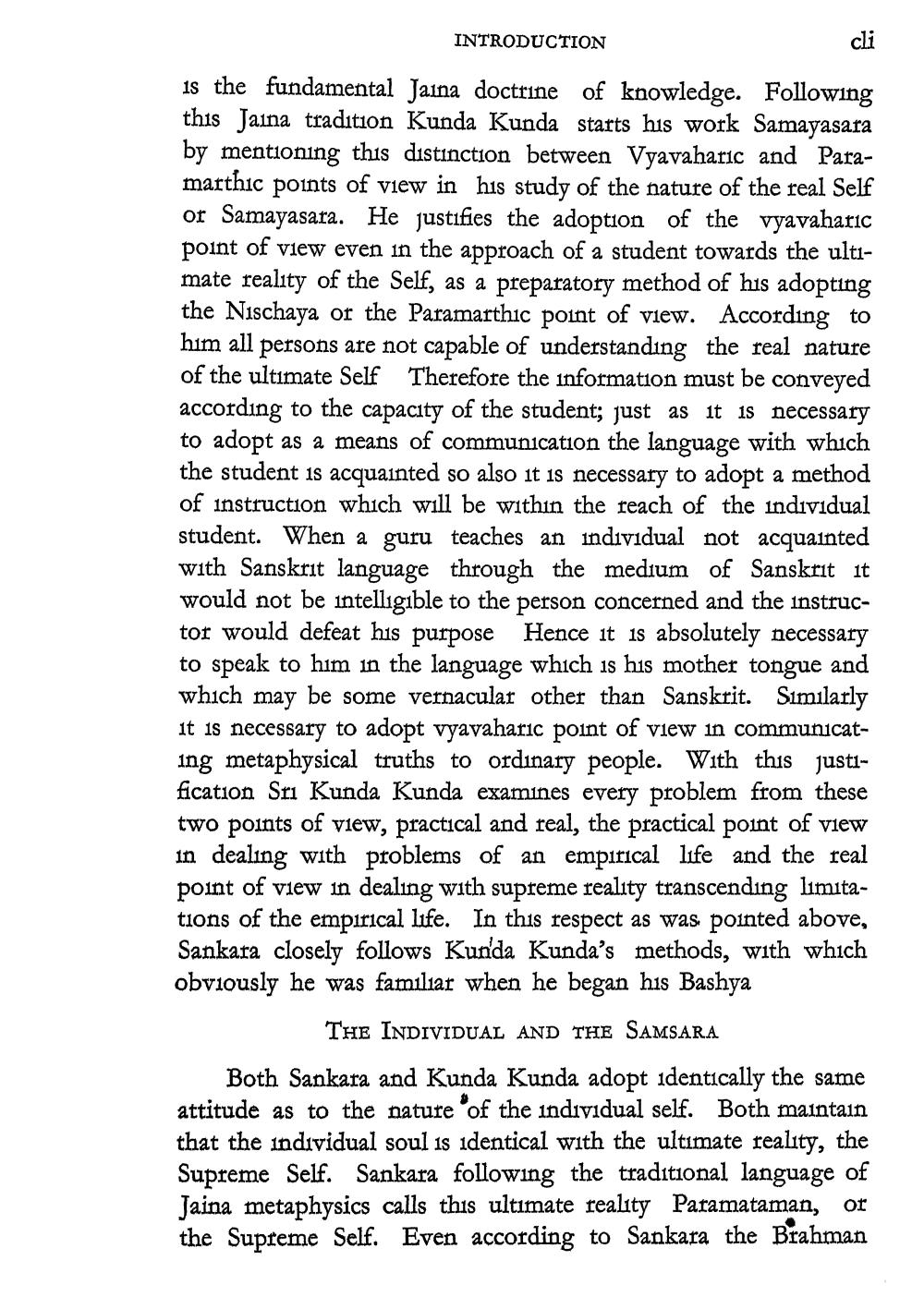________________
INTRODUCTION
cli
is the fundamental Jaina doctrine of knowledge. Following this Jaina tradition Kunda Kunda starts his work Samayasara by mentioning this distinction between Vyavaharic and Paramarthic points of view in his study of the nature of the real Self or Samayasara. He justifies the adoption of the vyavaharic point of view even in the approach of a student towards the ultimate reality of the Self, as a preparatory method of his adopting the Nischaya or the Paramarthic point of view. According to him all persons are not capable of understanding the real nature of the ultimate Self Therefore the information must be conveyed according to the capacity of the student; just as it is necessary to adopt as a means of communication the language with which the student is acquainted so also it is necessary to adopt a method of instruction which will be within the reach of the individual student. When a guru teaches an individual not acquainted with Sanskrit language through the medium of Sanskrit it would not be intelligible to the person concerned and the instructor would defeat his purpose Hence it is absolutely necessary to speak to him in the language which is his mother tongue and which may be some vernacular other than Sanskrit. Similarly it is necessary to adopt vyavaharic point of view in communicating metaphysical truths to ordinary people. With this justification Sri Kunda Kunda examines every problem from these two points of view, practical and real, the practical point of view in dealing with problems of an empirical life and the real point of view in dealing with supreme reality transcending limitations of the empirical life. In this respect as was pointed above, Sankara closely follows Kun'da Kunda's methods, with which obviously he was familiar when he began his Bashya
THE INDIVIDUAL AND THE SAMSARA Both Sankara and Kunda Kunda adopt identically the same attitude as to the nature of the individual self. Both maintain that the individual soul is identical with the ultimate reality, the Supreme Self. Sankara following the traditional language of Jaina metaphysics calls this ultimate reality Paramataman, or the Supreme Self. Even according to Sankara the Brahman




